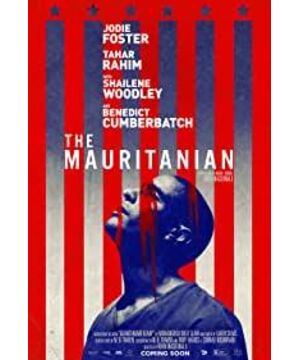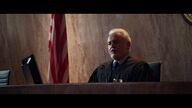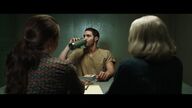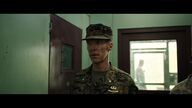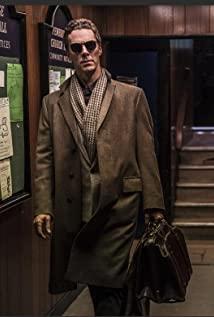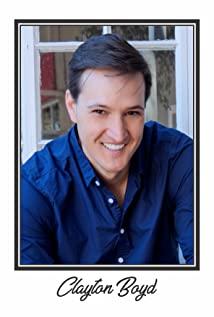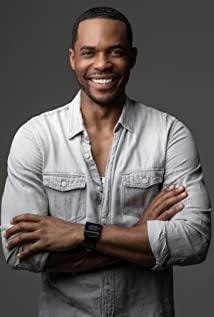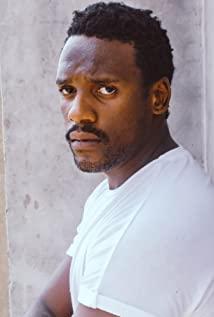A movie based on real events, heavy but very powerful, worth it! ! As a scholar of international politics, the U.S. war on terrorism and the Guantanamo prisoner abuse scandal are topics that I am very familiar with, but reading academic literature is completely different from watching literary works. I have been torturing myself during the entire screening process: if I were either party in the film Role, what would I think and how would I do it?
If I were Nancy: Why should I defend my innocence for the extremists who are likely to kill my compatriots and who are hostile to the government of my motherland? When I found out that my client was innocent, but defending him meant fighting against the powerful state apparatus, can I persevere to the end, without compromising, and not giving up? My work is destined not to be understood by most people. I may even be slandered and personally threatened by victims of terrorist attacks in my country, their families, ultra-nationalists, and other groups. Do I still have the courage to fight for my faith?
If I were Slashi: I have experienced countless waves of repeated interrogations, suffered long-term inhuman abuse, and witnessed the silent death of those who were also imprisoned around me. Can I still believe that this imprisoned me? In a country where someone believes that I am not guilty, someone is willing to defend me at all costs?
If I were Captain Kush: My comrade-in-arms died in a terrorist attack, I am a soldier, and I am also a lawyer. When I see conclusive evidence that the system that I once sworn allegiance is betraying its foundation, how do I choose? Boss, army, constitution, conscience, to whom should I be loyal?
There are no answers to these questions, but I am very grateful to the video for letting me rethink these questions. There is no perfect system in this world, and there must be loopholes in the system. Institutionalists may think that the system is rational, can regulate the operation of power, and avoid the interference of human factors to the greatest extent; but the reality is that the system is also designed by people and by people. There is no such thing as a purely rational system. Also facing suspected terrorists, the different attitudes of different people in the U.S. military shown in the film are worthy of careful taste: Captain Kush, played by Vol. It is very likely that his murderer was recruited into Al Qaeda by the male protagonist Slashi. This "blood sea of feud" was used by Kush’s boss, who believed that he could easily "find" evidence to sentence the male protagonist based on human emotions. death penalty. However, Kush did not allow emotions to overcome reason during the entire process of collecting evidence. Even if he encountered numerous obstacles, he still insisted on tracing the truth. After learning the truth, he insisted on defending the dignity and justice of the Constitution under the stigma of betraying the army; the man was initially interrogated. Although the host eagerly hopes that the male lead can confess his guilt, he still treats the suspect humanely and does not use confession, torture and other illegal methods to achieve his goal; after the CIA intervened, the situation became very bad, and their behavior has broken through human civilization. Under Kush’s pressure, some CIA officials were unable to face the torment of their conscience and chose to tell him the truth; among the soldiers who took care of criminals on a daily basis, some took pleasure in making fun of criminals, while others risked violating discipline. Risk revealed to the male protagonist the news of the death of the detainee in the next cell...In the entire huge system, every link is full of "ignorant evil", but there are always people who care about facts and truth, and there are always people who firmly uphold the dignity of the Constitution. Willing to protect justice at all costs.
This film also makes people think deeply about the root of the Islamic terrorism problem that currently plagues the entire Western society. The male protagonist was accused of being a terrorist because he is a Muslim, because his cousin is probably an important figure in Al-Qaeda, because he has stayed in a real terrorist... These pieces of information are enough to make people imagine his identity. Especially those who have preset positions in their hearts and are dominated by stereotypes and prejudices. Not only 9/11, but after any terrorist attack, the victim needs an outlet for emotional venting, and the perpetrator needs to be found responsible. This emotion will spread among the crowd and evolve into a social ideology with terrible power. When hatred and revenge lack concreteness When it comes to objects, the hatred for individuals can hardly rise to a group any easier. "After 9/11, Americans are crazy. People need to find someone to be responsible for it!" "It's some people, not anyone." This line explains the problem, but unfortunately, irrationality and emotionality belong to the human group. Normally, most people only believe what they are willing to believe. Ambiguous fragmented information and images outlined by imagination and preferences are enough to convict an innocent person. Evidence or something, who cares. The end result is a vicious circle. The mass hatred of Muslims in the West has stimulated larger, more radical and extreme terrorist acts, and the group hatred between races has gradually escalated but there is no way to resolve it.
Finally, I want to say that I admire Enannie Holland and others from the bottom of my heart! As an international political scholar, I remembered the teacher's graduation message to us when I graduated. What impressed me the most was the three "don'ts": Don't want the weak, don't help the evildoer, don't betray your conscience. Knowing is easy and doing is hard, always encourage yourself.
View more about The Mauritanian reviews


